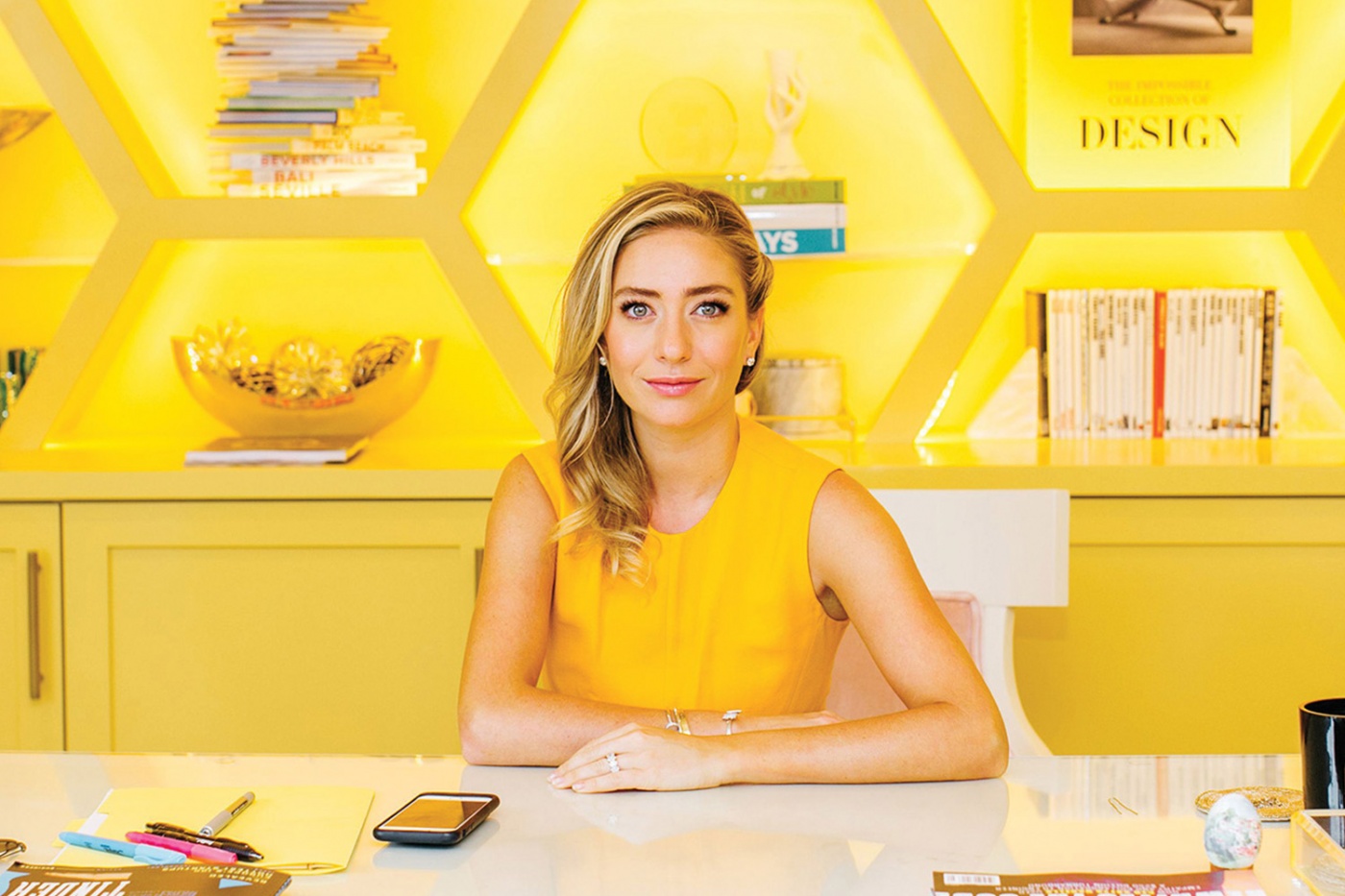Bumble Whitney Wolfe Herd’s Road to Becoming the World’s Youngest Female Billionaire
Break-ups can be a heart-wrenching affair, but yet they can be just as liberating for some. In the case of Bumble founder Whitney Wolfe Herd, leaving her ex-business partners was a blessing in disguise. After eight years of hustling, she recently became the world’s youngest self-made female billionaire in February as well as the youngest female chief executive to take a company public in the US.
The 31-year-old is now worth almost US$2 billion after the shares of Bumble skyrocketed last month. On its first day of training, Bumble stock opened at US$76 higher than its initial IPO price of US$43 per share. Currently, Bumble is the second big dating app to go public, after Match Group’s 2015 IPO, and according to American venture capitalist Kelsi Kamin, Bumble’s success could open more doors for female-founded businesses.” Here are five moves Wolfe Herd made throughout her career to reach billionaire status.
Ending Toxic Business Relationships
In 2014, Wolfe Herd started the Texas-based company as a “feminist dating app” shortly after leaving Tinder, where she had filed a sexual harassment lawsuit against her fellow co-founders Sean Rad and Justin Mateen. According to her, ex-Tinder CEO Sean Rad had subjected her to “a barrage of horrendously sexist, racist, and otherwise inappropriate comments, emails and text messages.” She also accused her ex-boyfriend and other co-founder Justin Mateen of sending her threats and unjustly divesting her of her co-founder title. The reason stated was that having a female with that title made “the company seem like a joke”—a glaring irony in hindsight. Eventually, the lawsuit was settled privately.
Learning From Past Mistakes
Shortly after her acrimonious estrangement, Wolfe Herd teamed up with Russian billionaire Andrey Andreev, (creator of dating app Badoo) to start Bumble. And tapped on his wealth of experience in building successful online dating apps for the European markets. What differentiated Bumble from Tinder and other apps was that women were the ones who could decide if they wanted to reach out to men first—allowing them to control the conversation, thereby giving them more power. Offering this unique feature also protected females from being bombarded with messages from men. It was novel, but the idea took flight and Bumble soon became the talk of the town, notwithstanding intense competition from other similar apps like Match.com and OkCupid. In 2016, the app expanded its portfolio to offer additional features like Bumble For Friends—and a year later, Bumble Bizz came along mainly for professional and career networking. Bumble is now reportedly used in 150 countries, with a monthly user base of 42 million.
When private equity firm Blackstone Group Inc. bought over Andreev’s share at a valuation of approximately US$3 billion last November, Wolfe Herd assumed full control of the company and received almost US$125 million in cash as well as a loan of US$119 million (that’s been repaid). Andreev had no qualms about letting Wolfe Herd take charge as she had proven herself to be “very insightful and innovative in the dating space.”
Staying True to the Vision
Creating Bumble was a life-changing and formative experience for Wolfe Herd with pivots along the way. Initially, she wanted to launch a female-only social network for women to send uplifting messages to each other, but she eventually listened to Andreev’s advice of concentrating on matchmaking. Still, she never lost sight of her intention of creating an app “by women, for women,” with a focus on female empowerment.
Even throughout the years of growth, Wolfe Herd remained true to her company’s ethos. She utilises artificial intelligence to scan through pictures to flag out any lewd images and once publicly slammed a misogynistic user for using inappropriate language. In August 2017, Bumble partnered with the Anti-Defamation League in a bid to remove users who used hate symbols in their profiles, and in 2019, the company, together with politicians successfully advocated for a new Texas law outlawing digital sexual harassment.
Knowing How to Break the Glass Ceiling
One of the fundamental obstacles that female founders face is raising capital. According to Pitchbook data, less than three per cent of venture capital dollars are allocated to women-led start-ups, because venture capitalists tend to favour only those in their network, in spite of evidence showing that women-led enterprises are more capital efficient.
Having a major partner like Andreev was paramount in helping Wolfe Herd overcome that glass ceiling. Wolfe Herd wrote in a letter that Badoo’s global scale and rich resources were instrumental in helping Bumble to become a household name. “When launching Bumble, we did so together with Andrey Andreev and his company Badoo, one of the pioneers of web and mobile dating products, in order to achieve the most impact and reach possible,” she said.
Following Her Gut
Sweet are the uses of adversity and these challenges helped Bumble to reach its unicorn position. Wolfe Herd now sits in the catbird seat, having built a successful company on her own terms by trusting her instincts and creating a product that adds value. “I’ve truly just always tried to build what I wish existed, what I wish could help make lives better for the women I care about and the people I love, and I think it doesn’t always have to follow the same path,” she remarked in an interview.
Image credit: Kristen Kilpatrick


